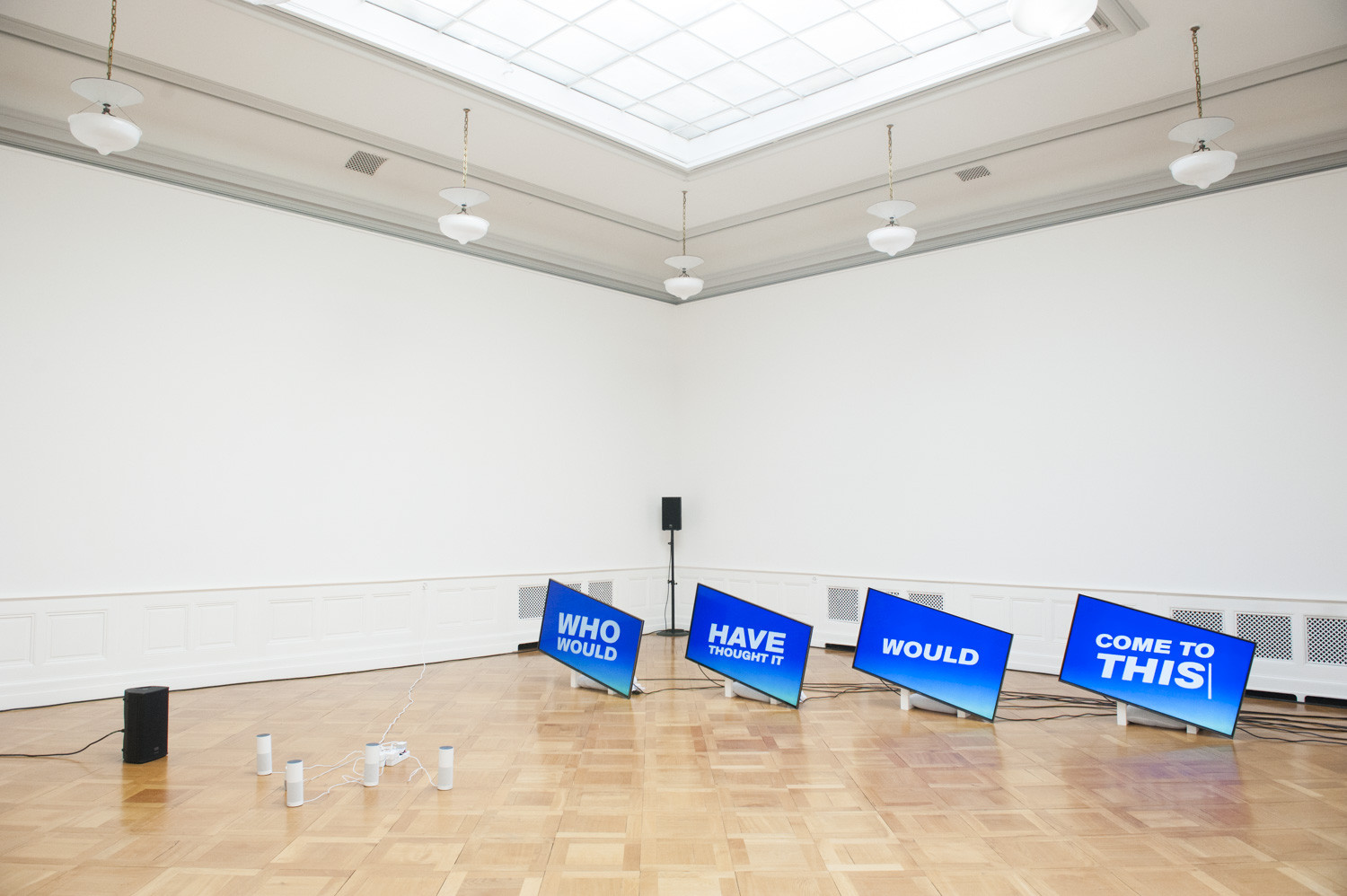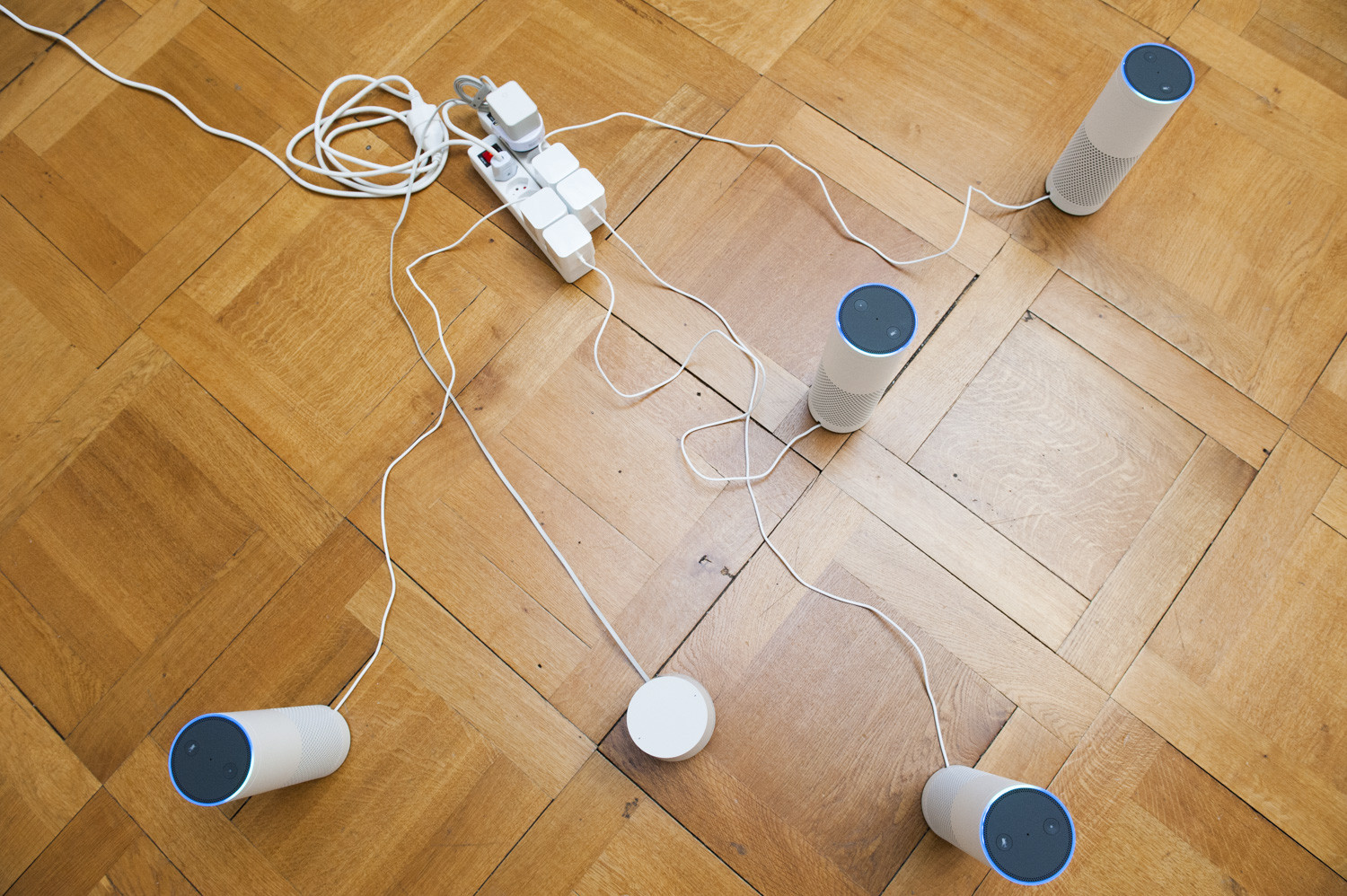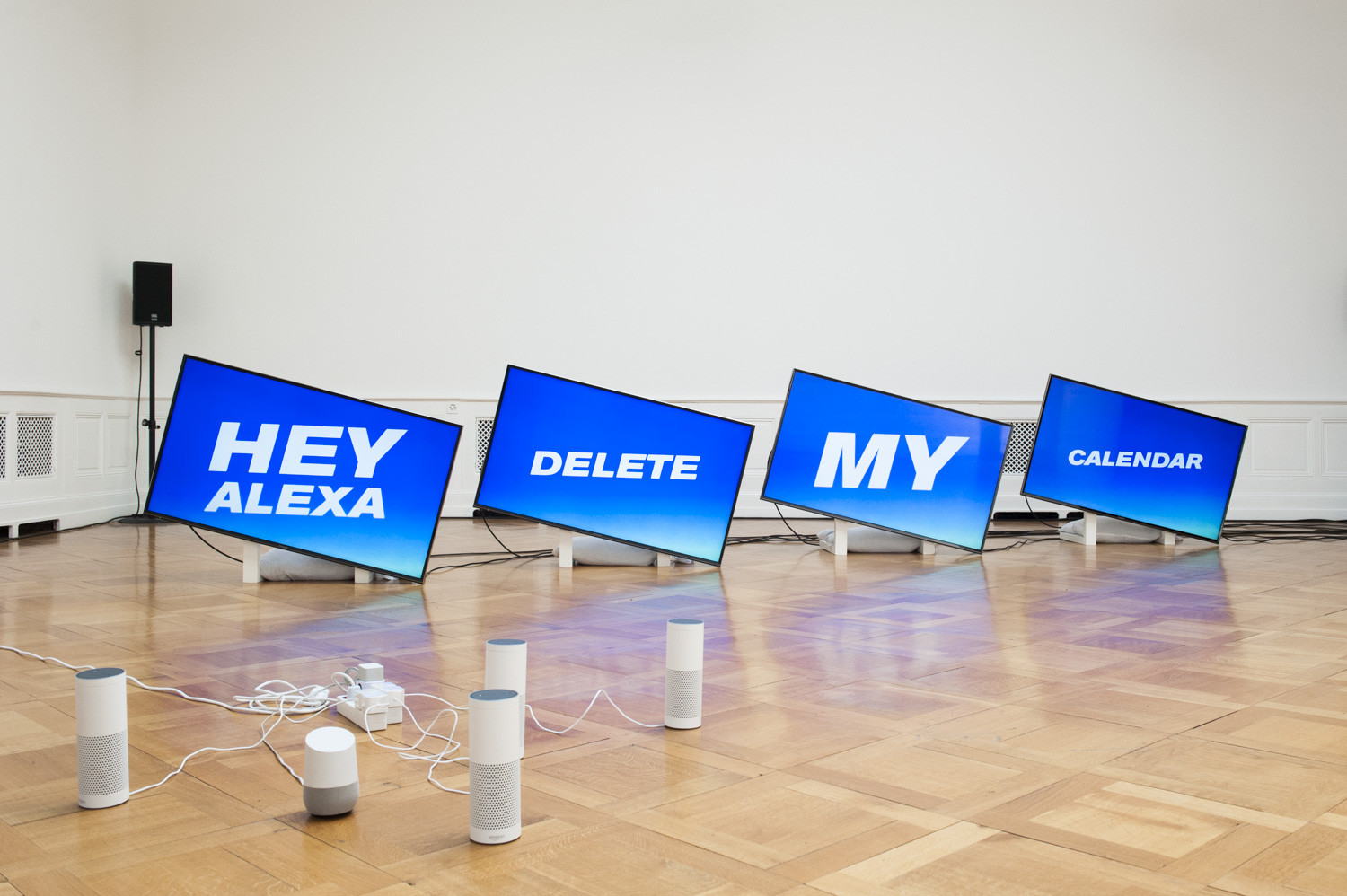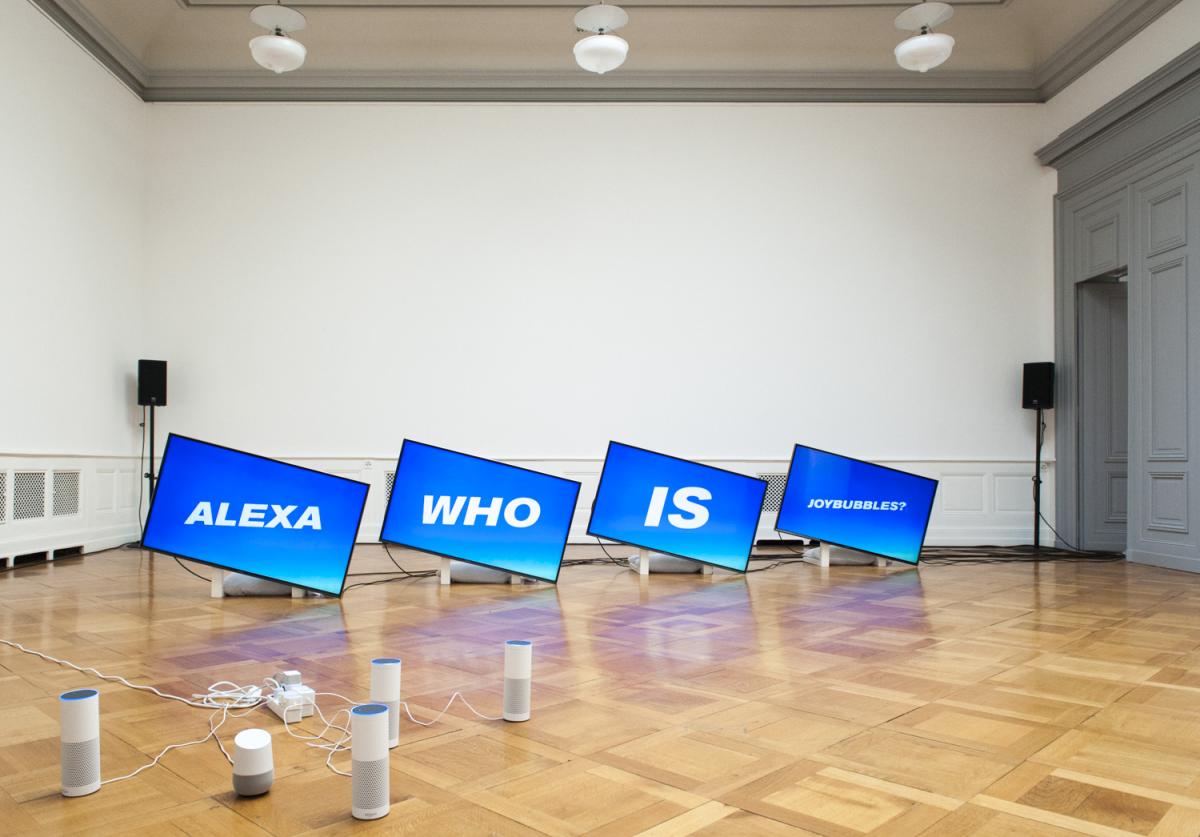
Alexa, Who is Joybubbles is the result of a collaboration between !Mediengruppe Bitnik and electronic music composer Philippe Hallais. It's a song that reactivates the memory of Joybubbles, the first telephone hacker, and imagines his intervention in the network of today's connected home devices and his encounter with personal assistant applications.
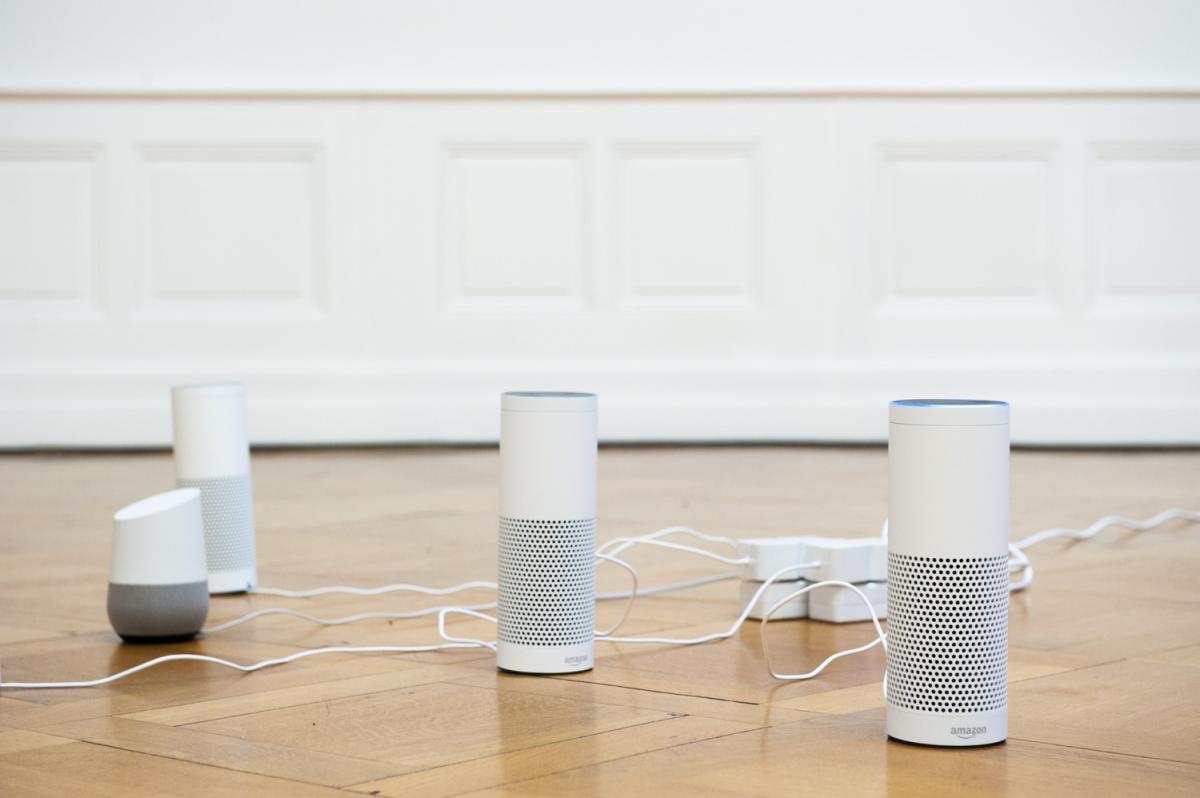
Telephone pirates, whose activity dates back to the 1960s, were avid and mischievous explorers of the telephone network. This network fascinated them because it was the first network, the first computer in fact, and it connected the whole world. One of the pioneers and most gifted among them was Joybubbles (May 25, 1949 – August 8, 2007), born Josef Carl Engressia Jr. in Richmond, Virginia, USA. Blind from birth, he became interested in the telephone at the age of four. When he was young, he had already discovered how to make calls for free. He had perfect pitch and was able to whistle at 2600 hertz, the frequency operators used to route calls and produce connections and disconnections. Joybubbles was therefore one of the first to explore this network and learn its codes, with his only breath. To produce this sound, the other hackers used devices they made themselves. Joybubbles acted as a catalyst, uniting hackers with diverse activities into one of the first virtual social networks. While he was blind, the phone gave him access to a network of like-minded people around the world. After the announcement of his dismissal from the university in 1968 and his conviction in 1971 for telephone violations, he became the nerve center of the movement. The hackers discovered that they could use certain telephone switches such as those in conference rooms so that the geographically dispersed group could discuss and exchange ideas and knowledge through the call of the same number, thus creating a social network long before the internet.
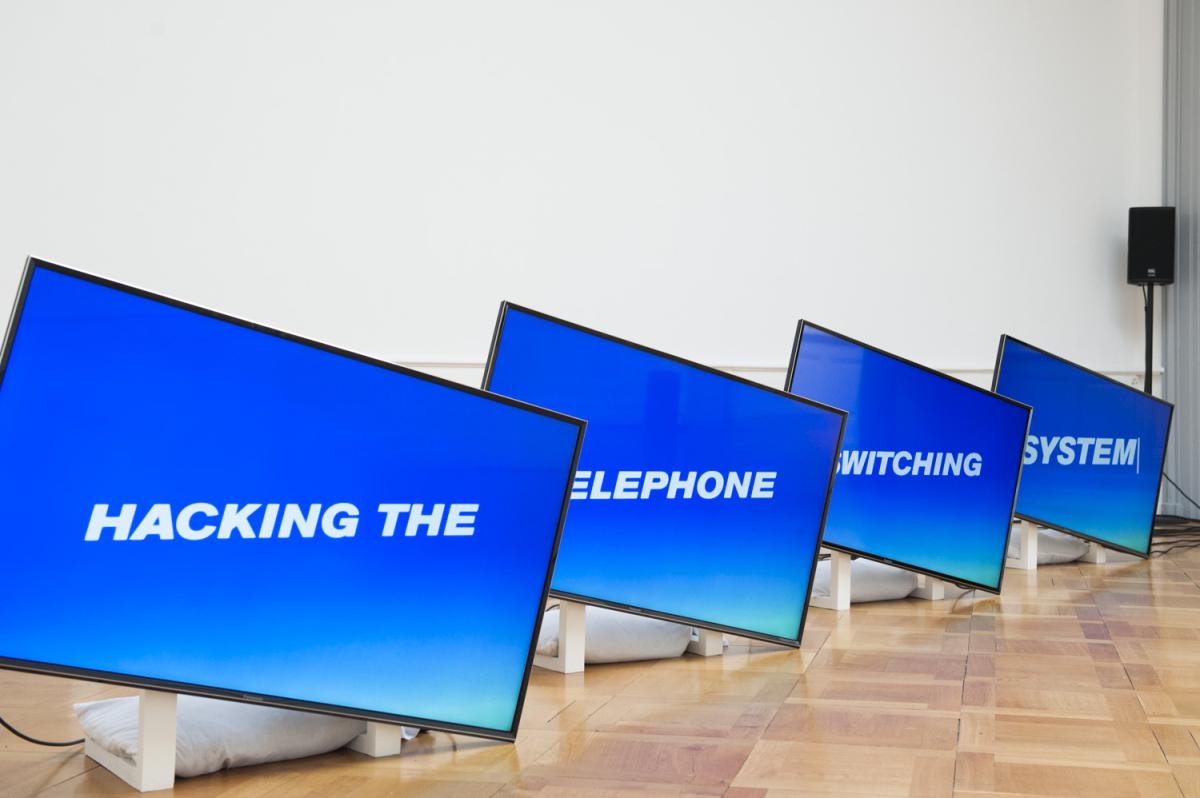
!Mediengruppe Bitnik & Phillipe Hallais have looked at the methods of these early hackers to engage with Alexa and fellow intelligent personal assistants. These devices, semi-autonomous entities, are just beginning to colonize our habitats. They are part of a new ecosystem of devices connecting physical space to virtual space and controlled by voice. These devices have a certain capacity for action, they act according to a set of rules and algorithms. These algorithms and these rules are not revealed to the user, as well as the data that these devices recover. The user therefore has no control over the operation of these devices, he cannot assess their partiality. He cannot know what data about him is collected by the device.
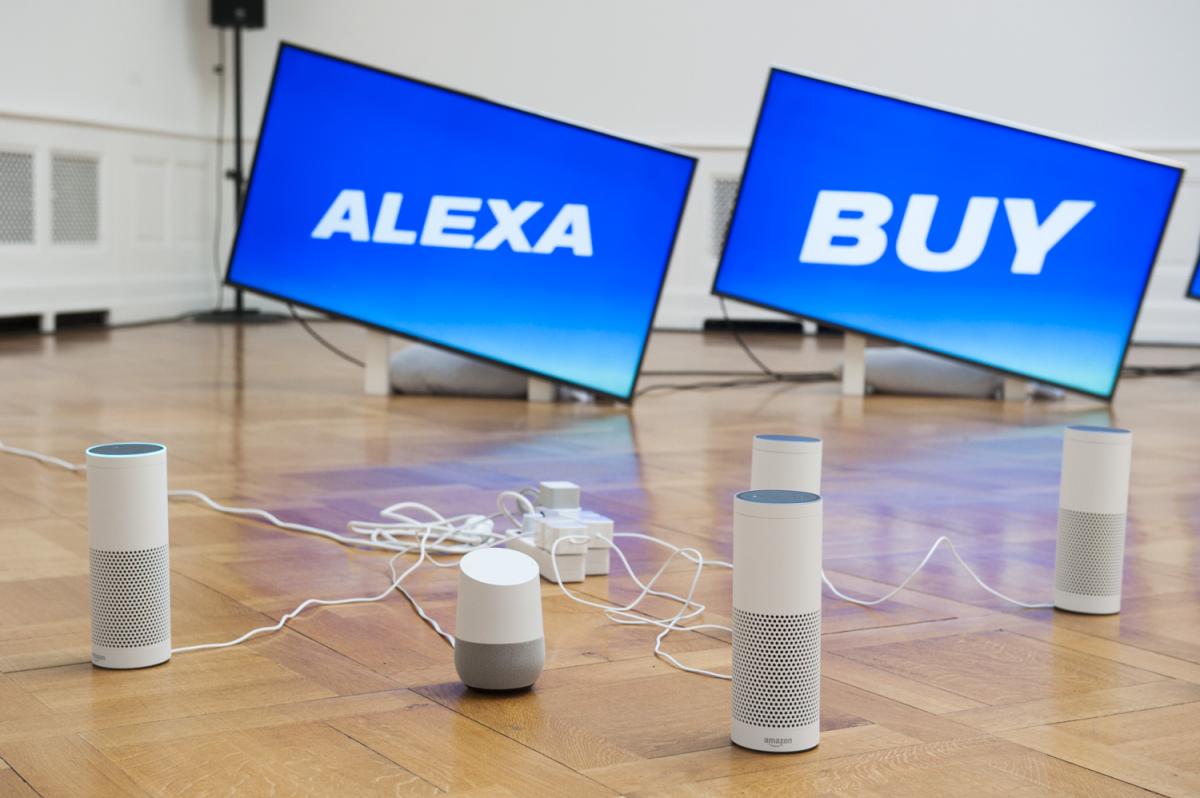
What will Joybubbles do with these voice-activated devices? Who acts when these devices act? Am I the one ordering food when my fridge decides to stock up? And what if it was hacked and sent spam instead? When I surround myself with these semi-autonomous devices, is my capacity for action extended or, on the contrary, diminished? What happens when one of these devices is triggered by the sound of a song playing on the radio?
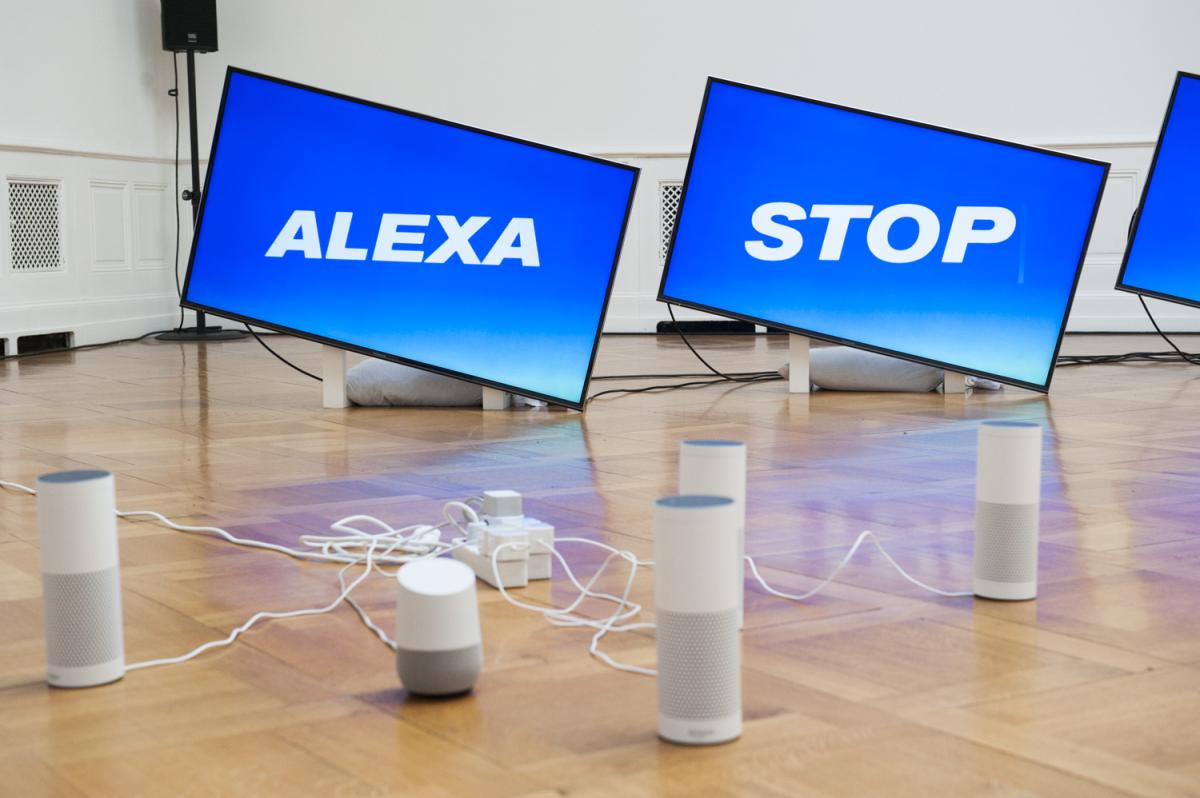
The music here refers to the great influence that mobile phones may have had on contemporary popular music such as dancehall and ragga. Since the 90s, when these phones started to be part of our lives, they influenced the way music was produced. From its inception, the mobile phone acted as a portable sound system, first using popular songs for its ringtones, then thanks to the Internet access provided by smartphones. With electronic instrumentation gaining ground since the 1980s, the sound of dancehall has changed dramatically to become increasingly characterized by instrumental sequences (or "riddims"). The typical sounds of mobile phones have become a real source of samples. Alexa, Who is Joybubbles is a tribute to the use of the phone in dancehall, and to Joybubbles. ♥‿♥
Photos: Greg Clément, Genève
